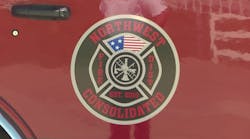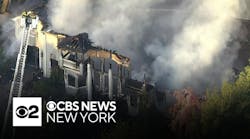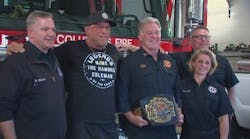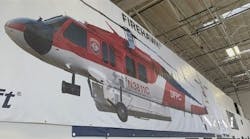In that column, I asked for volunteers to step forward and join with me in a "think tank" program that has become known as Harry's Gang. One of my long-term dreams involves the creation of a group of thinkers who will have a distinct impact on the fire service. The strength of that impact will vary by the strength and personality of each individual member of the gang.
It was not my intention to clone Harry-like people around the world. That would be silly, self-defeating and supremely presumptuous of me. I wanted people to have an opportunity to exercise their ability to think, and perhaps expand a horizon here and there.
My first effort has been somewhat slow to bear fruit. There were unforeseen pressures from my consulting practice. There was the battle of the computer virus that ate my hard drive. But most of all there was that burst of laziness that strikes most people who are freed from the harness of regular, full-time employment. Not having to report to the fire department translated into a fairly long, vacation-like period when work played a small role in life.
However, I have a very close friend. His name is Bruce Lukaszewicz, and he is also a fellow firefighter, a sounding board and a Brother Mason. He is also my webmaster for www.HarryCarter.com. It was he who lit the proverbial fire under me. Heck, for awhile there he sounded like a U.S. Army recruiting commercial with his be-all-that-you-can-be approach to motivating me. But he was successful in getting me moving in a positive manner.
Back to the issue at hand. My first request of Harry's Gang involved having everyone list what they felt to be the top six positive traits, acts, actions and activities of the best leader for whom they ever worked. They were then asked to describe the exact opposite in the way of the top six negative things that really bugged them regarding the worst boss they ever encountered.
I thought that this would be a fairly simple way to stir the creative juices of the fine folks who stepped forward to help me think. I was quite surprised to see how many different directions their thinking took. It had been my original idea to create a single column and cover the good and bad points that the gang and I created.
As it turned out, many different thoughts, and variations of thoughts, came from this research. In line with that thought, we are going to be covering a wide range of topics over the next several months.
In order to form a firm basis for my commentary, I have done some research into leadership issues. An interesting book from the top shelf in my office provided some interesting points to ponder. The 7 Habits of Highly Effective People by Stephen R. Covey sets up some strong ground rules for thinking about leadership.
One of the great statements made by this fine author is that during the past 60 years we have become hung up on the quick fix. We are more interested in what he defines as "the personality ethic." He stated that people came to be more interested in defining "… success …(as) a function of personality, of public image, of attitudes and behaviors, skills and techniques."
Think about it. How much easier is it to take a pill to cure something than to devote yourself to a regimen of exercise and improved diet. The same holds true when developing yourself as a leader. People think that there is ONE good book, or ONE best way. It's just not true.
Mr. Covey's research further discovered that in the first century and a half of America, the actions of citizens in our country were predicated upon what he defined as "the Character Ethic." He states that "…the character ethic taught that there are basic principles of effective living, and that people can only experience true success and enduring happiness as they learn and integrate these principles into their basic character."
I have found this to be quite true in my life, particularly in the area of weight control. The quick fix always looks good for a short while. Unfortunately, the results disappear more quickly when you slide back to your old ways.
As I continued through Mr. Covey's text, the thought came to me that what I needed to write about are the basic principles that a person needs to succeed as a leader. Not the things that make us look good. Not the things that allow us to control people. Not the things that focus the spotlight upon ourselves, to the exclusion of our people.
In line with this thought, I will now present a preliminary list of those things that Harry's Gang thought important enough to comment on. This is a distillation of more than 40 responses of all types and kinds. Topics have been placed on this list in the order that they were received.
Good leaders:
- Listen to you.
- Do things in a proactive manner.
- Have a true passion for their job and their troops.
- Talk to you, not above you or down to you.
- Motivate their troops.
- Lead by example and are willing to share in the work.
- Coach and mentor the team.
- Stand up for their people.
- Remember where they came from.
- Instill confidence and stand calm in the midst of chaos.
- Are fair and impartial.
- Know the job and know themselves and their limitations, strengths and weaknesses.
- Establish a set of principles and operate consistently within them.
- Are loyal to their team.
- Are consistent.
- Communicate effectively.
- Want to make a difference.
- Can see the big picture.
- Do not micromanage - they let their people try.
- Remember people's names.
My next several columns will probe each of these areas and deliver some cogent thoughts and examples of how to make them a part of your character.
Harry R. Carter, Ph.D., MIFireE, a Firehouse® contributing editor, is a municipal fire protection consultant based in Adelphia, NJ. He is also an associate professor at Mercer County Community College and a past chief and active life member of the Adelphia Fire Company. Dr. Carter retired from the Newark Fire Department in 1999 as a battalion commander. He also served as chief of training and commander of the Hazardous Materials Response Team. Dr. Carter is a Member of the Institution of Fire Engineers of Great Britain (MIFireE). He may be contacted through his website at [email protected]




